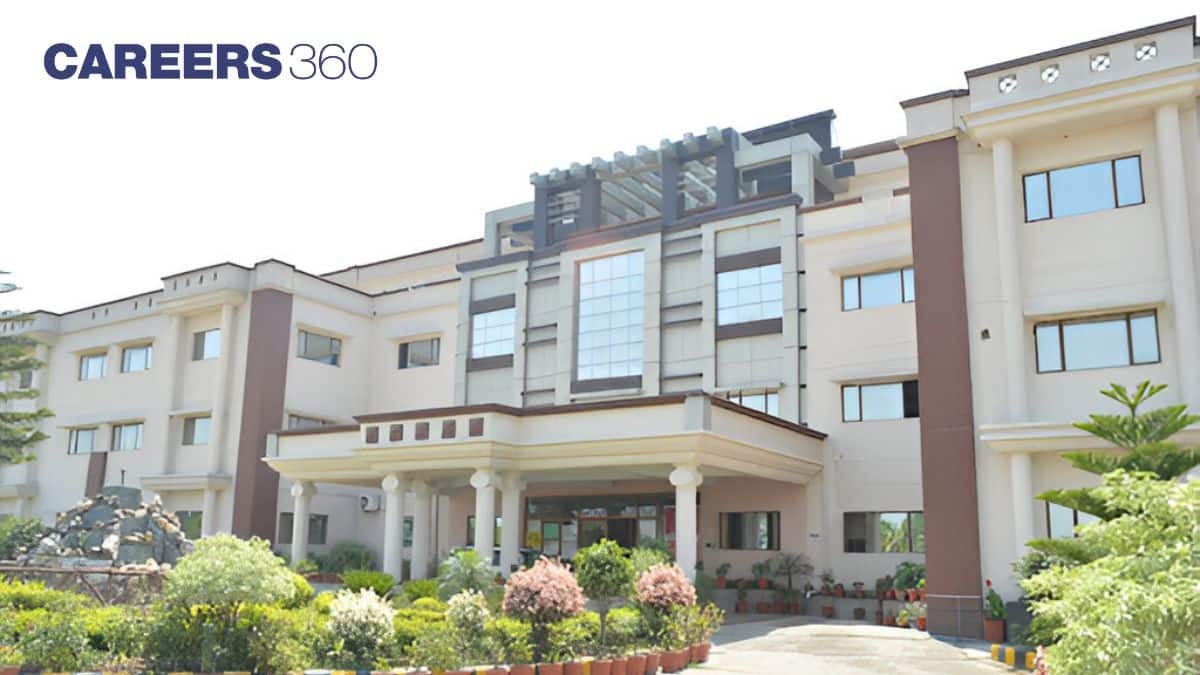Parul University B-TECH Admissions 2026
India's youngest NAAC A++ accredited University | NIRF rank band 151-200 | 2200 Recruiters | 45.98 Lakhs Highest Package
JB Institute of Technology (JBIT) Dehradun has started accepting applications for B.Tech programmes. Other than these, JBIT Dehradun courses include M.Tech, MBA and PhD. Candidates have to pay an application fee of Rs 1,000/- and can apply online and offline. Candidates meeting the JBIT Dehradun selection criteria will be considered for the admission process.
This Story also Contains

Various specialisations are offered in the B.Tech course such as Artificial Intelligence & Machine Learning, Mechanical Engineering, Computer Science Engineering, Electronics & Communication Engineering, Electrical Engineering and Civil Engineering. Candidates having valid scores in entrance tests like JEE Main and a good merit in 10+2 will be entertained for JBIT Dehradun admissions.
Course | Eligibility Criteria |
|---|---|
Passed 12th with 45% marks in relevant stream. + JEE Main/ UKSEE |
Note: Apart from this, various other courses are offered by the institute.
Visit the official website of the institute.
Click on “Apply Now”
Fill out the Registration form with your Name, Mobile Number and Email ID.
After filling out the registration form, you will be redirected to the application form.
Pay the application fee of Rs 1,000/- fill out the application form with the necessary details and attach all the documents required.
Submit the form upon completion of filling the form.
For JBIT Dehradun B.Tech course, candidates are required to appear for the JEE Main entrance exam as well as based on the merit of the last qualifying examination.
| Course | Total Fees |
|---|---|
B.Tech | Rs 2,24,000/- |
Note: Candidates can pay the fees at the time of admissions.
Address: Mile Stone 23, Near Selaqui, Chakrata Road, Dehradun
Mobile Number: 9368623664
Website: jbitdoon.com
JBIT Dehradun has been offering placements to students in various companies such as Amazon, Flipkart,Acme, Hero, Bajaj and others. In 2024-25, the highest package of Rs 11 LPA was secured by the students during JBIT Dehradun placements with over 2500+ students placed.
JBIT Dehradun was founded in the year 2009 and has been approved by the AICTE and has been recognised by the PCI. Various facilities like a library, cafeteria, auditorium, separate hostels are offered to the students at JBIT Dehradun.
On Question asked by student community
JB Institute of Technology offers admission to the courses on different basis. Admissions to the Bachelor of Business Administration and bachelor of science are provided on the basis of merit scores achieved in the 10 + 2 class level board examination. There are entrance examination scores accepted for admission to
Greetings!
Overview of JBIT Dehradun:
Placements: 99% students got placed from JBIT. A lot of companies visit in campus like TCS, Wipro, Cognixia, tech Mahindra, Ericsson. The placement record of JBIT is too good. The placement is organized by the placement cell and the whole placement cell is very helpful.
Dear Aspirant ,
JB Institute of technology is an average college . I don't personally know anything about college but as per the reviews given by students and its ranking and facilities provided by college I can say it is an average college . You can also check the details
Among top 100 Universities Globally in the Times Higher Education (THE) Interdisciplinary Science Rankings 2026
Recognized as Institute of Eminence by Govt. of India | NAAC ‘A++’ Grade | Upto 75% Scholarships
Among top 100 Universities Globally in the Times Higher Education (THE) Interdisciplinary Science Rankings 2026
Highest CTC 44.14 LPA | UGC Approved | 1600+ Recruiters | 100% Placement
NAAC A++ Grade | Recognized as Category-1 Deemed to be University by UGC | 41,000 + Alumni Imprints Globally
NAAC A+ Accredited | Among top 2% Universities Globally (QS World University Rankings 2026)